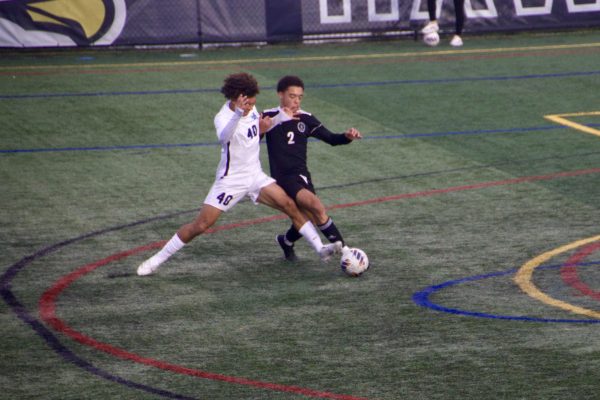March Madness and spring sports cancelled Spectators are upset but understanding
On March 12, the entire world of collegiate sports was shaken. The National Collegiate Athletic Association (NCAA) cancelled its men’s and women’s basketball tournaments and all spring and winter championships as a result of COVID-19, also known as Coronavirus.
According to ESPN, 16 different sporting events were impacted by the announcement, including events like the men’s and women’s lacrosse championships, men’s and women’s college world series and many more.
The NCAA was looking at possibilities of postponement before the men’s and women’s basketball season known as March Madness was officially cancelled. After taking into consideration different decisions to close schools and universities, the association decided to cancel the season completely.
JJ Pfohl, a junior on the Men’s Basketball Team, has been watching the tournament for as long as he can remember.
“I watched all the men’s tournaments and followed it very closely. I watched most of the games and rooted for the teams that I picked to win or that had the best culture,” Pfohl said. “When I watch women’s college basketball, I only really watch UCONN. However, this year I watched a couple Oregon games as well.”
Junior Zach Beaulieu, an avid watcher of the tournament, says the season cancellation is a really big let down.
“It is one of the largest events of the year and one of the most exhilarating sporting events to watch… the way it all happened only makes it worse,” Beaulieu said. “Within a few days, the tournament was on as normal, to possibly being fanless, to completely canceled.”
According to the NCAA, the Men’s Division I Basketball Tournament started on March 17, 1939. It was first used to refer to basketball by an Illinois high school official, Henry V. Porter. The term found its way to the NCAA tournament in 1982 when a CBS Broadcast Reporter Brent Musburger used it during the coverage in that year’s tournament.
It has been insanely popular in men’s and women’s basketball ever since. Spectators were also able to create brackets and choose which teams they believe will win based on statistics or by the team they follow. It makes spectators feel as if they are part of the tournament.
Pfohl believes this is one of the many reasons why the tournament is so popular.
“I think it is very popular because people like to try and pick the perfect bracket. In addition, it is the only sport where you can watch games all day for a certain period of time,” Pfhol said. “I think everyone loves watching to see if there will be a big upset or a Cinderella team.”
“The sport is a fun one to watch. The teams and athletes are phenomenal,” Beaulieu said.
“But the format is what gives it that next tier. 68 teams. 67 games. Played over a few weekends. The first weekend there are games all day long. Non-stop thrilling entertainment at the highest level. As the rounds progress, so does the importance and the intensity.”
Pfohl and Beaulieu agree that everyone tries to make the perfect bracket. This is part of the reason why it is so enjoyable for spectators.
March 15 would have been “Selection Sunday” for all the spectators watching the tournament. This is very upsetting for avid spectators like Beaulieu.
“I look forward to Selection Sunday more than anything else all year. Spending the next few days playing all scenarios out in brackets,” Beaulieu said. “It all just got ripped away and there is nothing anyone can do.”
Pfohl thinks this is so upsetting because to him, basketball is more than just a sport.
“It’s tough to see that some people will not be able to fight for their dreams, goals and aspirations,” Pfohl said. “They worked their butts off and it is tough to end a season that technically was never finished.”





